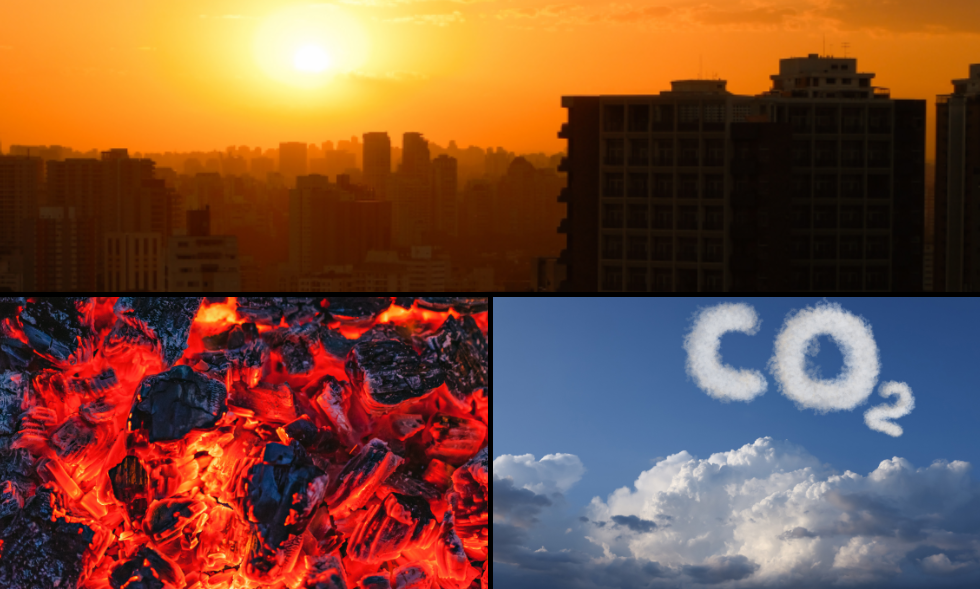
Former Spanish prime minister Jose Maria Aznar–an outspoken critic of global warming alarmism as a “new religion”–will be among 70 skeptics who will confront the subject of global warming at the second International Conference on Climate Change in New York City March 8-10, 2009.
Aznar, who as prime minister in 1998 signed the Kyoto Protocol against global warming in Spain’s name, told an audience in Paris in October, “In these times of global cooling of the international economy … the standard bearers of the climatic apocalypse demand hundreds of billions of euros” to combat global warming.
The former chief executive doesn’t deny global warming exists in some measure, but he questions the benefit of dedicating so much money to combat it while the world is in an economic crisis and other more pressing health problems face the world’s population.
“Many of the champions of the idea of climatic apocalypse have little or nothing to do with science,” he said. “They are something else. It is more like a new religion that condemns to the public bonfire those who dare question their theses, forecasts, and warnings.”
The United Nations’ Intergovernmental Panel on Climate Change has said global warming is “unequivocal” and “most of the observed increases in temperatures over the last 60 years is very likely due to increases in human-generated greenhouse gas concentrations.”
However, the empirical evidence continues to mount in the skeptics’ favor, and more than 1,000 attendees–including private-sector business people, state and federal legislators and officials, policy analysts, media, and students–are expected in New York in March.
Joseph Bast, president of The Heartland Institute, producer of the event along with more than 40 co-sponsors, explained, “At the first conference last March, we proved that the skeptics in the debate over global warming constitute the center or mainstream of the scientific community while alarmists are on the fringe.
“Now in the past nine months, the science has grown even more convincing that global warming is not a crisis. The crisis has been cancelled by sound science and common sense.”
In addition to Mr. Aznar, headliners among the 70-plus presenters include:
- American astronaut Dr. Jack Schmitt
- Richard Lindzen, Massachusetts Institute of Technology, one of the world’s leading experts in dynamic meteorology, especially planetary waves
- William Gray, Colorado State University, leading researcher into tropical weather patterns
- Willie Soon, Harvard-Smithsonian Center for Astrophysics
- Roy Spencer, University of Alabama at Huntsville, principal research scientist and team leader on NASA’s Aqua satellite
A partial list of confirmed speakers appears below.
Dan Miller, executive vice president of The Heartland Institute, a 25-year-old national nonpartisan think-tank based in Chicago, said, “All of the event’s expenses will be covered by admission fees and individual and foundation donors to Heartland. No corporate dollars earmarked for the event were solicited or accepted.”
Partial list of confirmed speakers at the
Second International Conference on Climate Change
Syun Akasofu
University of Alaska Fairbanks
J. Scott Armstrong
University of Pennsylvania
Dennis Avery
Hudson Institute
Joseph L. Bast
The Heartland Institute
Robert Bradley
Institute for Energy Research
Yaron Brook
Ayn Rand Institute
Bob Carter
James Cook University (Australia)
Frank Clemente
Penn State University
John Coleman
KUSI-TV, San Diego
William Cotton
Colorado State University
Joe D’Aleo
International Climate and Environmental Change Assessment Project
David Douglass
University of Rochester
Terry Dunleavy
International Climate Science Coalition
Myron Ebell
Competitive Enterprise Institute
Christopher Essex
University of Western Ontario
Robert Ferguson
Science and Public Policy Institute
Michelle Foss
University of Texas, Center for Energy Economics
Fred Goldberg
Royal School of Technology (Sweden)
Laurence Gould
University of Hartford
William Gray
Colorado State University
Kesten Green
Monash University
Howard Hayden
University of Connecticut
Chris Horner
Competitive Enterprise Institute
Craig Idso
Center for the Study of Carbon Dioxide and Global Change
Sam Kazman
Competitive Enterprise Institute
Richard Keen
University of Colorado
William Kininmonth
Former head of the Australian National Climate Center
David Legates
University of Delaware
Jay Lehr
The Heartland Institute
Marlo Lewis
Competitive Enterprise Institute
Richard Lindzen
Massachusetts Institute of Technology
Keith Lockitch
Ayn Rand Institute
Craig Loehle
National Council for Air and Stream Improvement
Anthony Lupo
University of Missouri
Steve McIntyre
University of Toronto
Ross McKitrick
University of Guelph (Canada)
Patrick Michaels
University of Virginia
Christopher Monckton
Science and Public Policy Institute
Kevin Murphy
University of Chicago
Joanne Nova
Author, The Skeptics Handbook
Jim O’Brien
Florida State University
Tim Patterson
Carleton University (Canada)
Benny Peiser
Liverpool John Moores University (United Kingdom)
Paul Reiter
Pasteur Institute (France)
Arthur Robinson
Oregon Institute of Science and Medicine
Joel Schwartz
American Enterprise Institute
S. Fred Singer
Science and Environmental Policy Project
Fred Smith
Competitive Enterprise Institute
Lawrence Solomon
National Post (Canada)
Willie Soon
Harvard-Smithsonian Center for Astrophysics
Roy Spencer
University of Alabama in Huntsville
George Taylor
Oregon State University
James M. Taylor
The Heartland Institute
Brian Valentine
U.S. Department of Energy
Jan Veizer
University of Ottawa (Canada)
Anthony Watts
SurfaceStations.org




